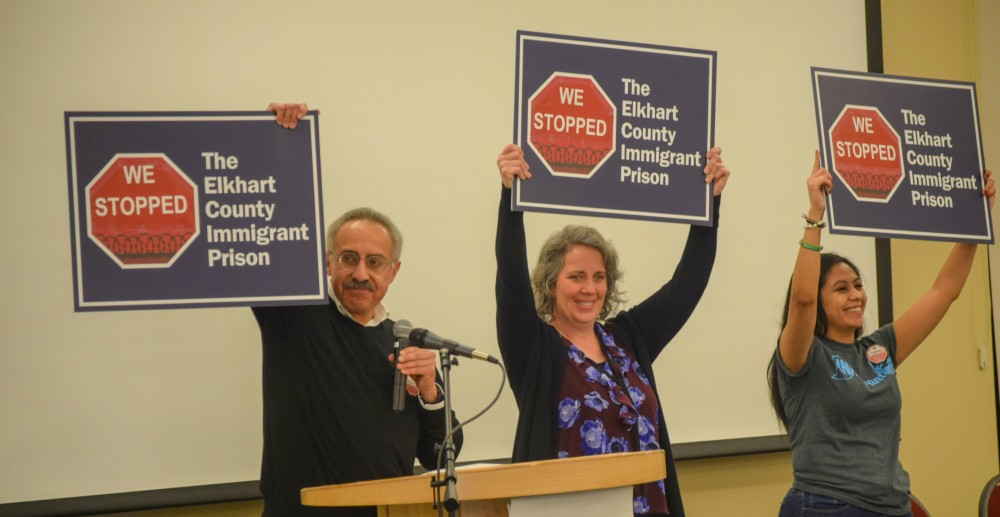Churches, local leaders defeat plan to build prison for immigrants
Hundreds of people awaiting deportation hearings would have been incarcerated in Elkhart County, Indiana.

When Mike Yoder, a county commissioner in northern Indiana, learned about plans for a private prison nearby that would have a contract with Immigration and Customs Enforcement to house people from a six-state region in the Midwest, he went to his pastor.
“At the time, somewhat joking, I said the only positive I can see in it is it’s not as far to drive to protest,” said Jeremy Shue, pastor of Silverwood Mennonite Church in Goshen, Indiana.
Yoder learned of CoreCivic’s interest in Elkhart County in September. The company, formerly called Corrections Corporation of America, was seeking county approval to build a prison on a piece of land near the county jail and two landfills. The final decision would fall to Yoder and just two other commissioners, the chief executive officers of the county.





